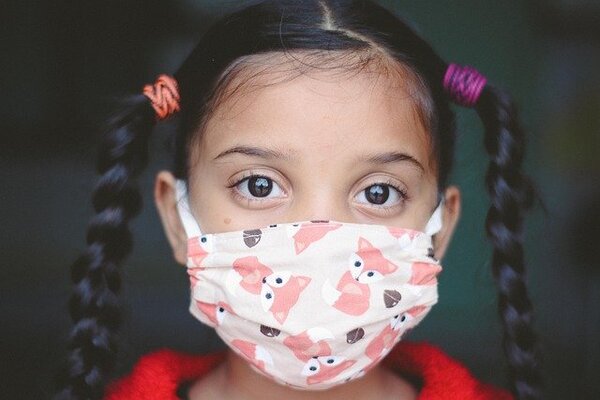
My county recently re-instituted an indoor mask mandate. In reading through the exemptions in the public health order I found this exception to mandated face coverings:
“Exceptions. Individuals performing any of the following activities are exempt from the Face Covering requirements of this Order while the activity is being performed:
a. Individuals who are hearing impaired or otherwise disabled or who are communicating with someone who is hearing impaired or otherwise disabled and where the ability to see the mouth is essential to communication”
This is important because children and/or students do not have the speech or language ability that adults have — they are not equally able and the ability to see the face and especially the mouth is critical to language acquisition which children and/or students are engaged in at all times. Furthermore, the ability to see the mouth is not only essential to communication but also essential to brain development.
“Studies show that by age four, kids from low-income households will hear 30 million less words than their more affluent counterparts, who get more quality face-time with caretakers.” (https://news.stanford.edu/news/2014/november/language-toddlers-fernald-110514.html)
Who get more quality face-time!!! This “word gap” is not just a matter of hearing words but also of seeing the facial movements and cues inherent in live language. If this were not the case, 50 years of Sesame Street would have gone a long way to resolving the issue.
Of course, there is another way to close the gap and that is to disadvantage all children regardless of socioeconomic status. We can disable all children by physically impairing them from acquiring language skills and verbal mastery beginning at birth by masking the population.
The ADA defines a person with a disability as a person who has a physical or mental impairment that substantially limits one or more major life activity.
A masked population constitutes a physical impairment for children and/or students that impedes language acquisition and brain development.
“Cognitively, experience is sequential: Experiences in infancy establish habits of seeking, noticing, and incorporating new and more complex experiences, as well as schemas for categorizing and thinking about experiences. Neurologically, infancy is a critical period because cortical development is influenced by the amount of central nervous system activity stimulated by experience. Behaviorally, infancy is a unique time of helplessness when nearly all of children’s experience is mediated by adults in one-to-one interactions permeated with affect.”
Again, we have “one-to-one interactions permeated with affect” during a critical period of brain development.
“Once children become independent and can speak for themselves, they gain access to more opportunities for experience. But the amount and diversity of children’s past experience influences which new opportunities for experience they notice and choose.”
Photo credit: educadormarcossv Pixabay license



Mathew, that’s ridiculous. I that’s the case, they DON’T have to use the masks at school, rather than at home. And since they don’t trasmit the desease to their parents, that means they don’t have to use masks EVER.
The mental effects are much greater
@Matthew
There is no evidence showing children transmit disease to their parents – none. During the entire pandemic there is not one case in Sweden which kept schools open the entire time, when such transmission was documented. Children are able to crush the infection while exhibiting little if any disease. It is likely that they have fewer infectious particles due to their ability to handle the infection with little or no disease which would explain why they are not infectious. It would be nice if someone would provide funding to consider such possibilities.
A famous Greek philosopher used to put pebbles in his mouth and speak into the roar of the ocean to make him enunciate better. These masks will do the same thing for the kids. Although covid is not as dangerous for kids, the mask may help to prevent them from bringing it home to their parents and grandparents whoare way more susceptible.